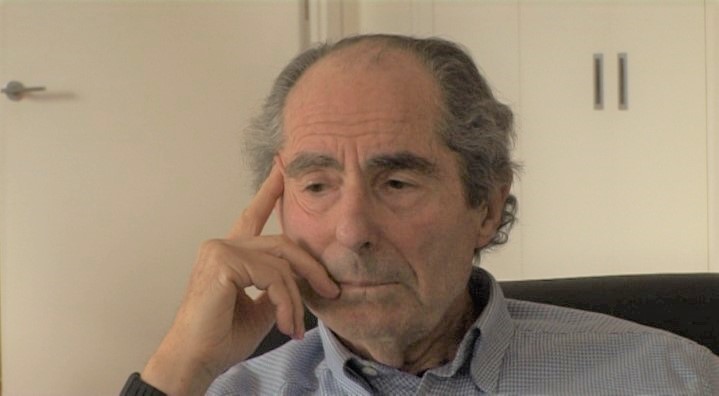NEXT STORY

Creating a cast of characters
RELATED STORIES

NEXT STORY

Creating a cast of characters
RELATED STORIES


|
Views | Duration | |
|---|---|---|---|
| 121. Assessing the power of sex words | 423 | 01:48 | |
| 122. Sex: how to handle this dynamite | 1 | 389 | 01:58 |
| 123. Writing about sex in American Pastoral | 434 | 02:18 | |
| 124. Being bold about sex | 420 | 03:16 | |
| 125. Sex: both serious and ridiculous | 365 | 03:12 | |
| 126. 'In the destructive element, immerse yourself' | 1 | 485 | 03:43 |
| 127. Creating a cast of characters | 379 | 02:59 | |
| 128. The writer's passion for thoroughness | 404 | 01:57 | |
| 129. Proust made no impact on me | 1 | 903 | 00:47 |
| 130. Patrimony: a true story | 374 | 02:45 |


Conrad's line, 'In the... in the destructive element, immerse yourself'. I... I don't remember where that comes from. I think... I think it's... maybe even in Lord Jim, but I... I'm not sure. That line struck me the first time I ever read it and it stayed with me all my life. Sometimes it's an interesting statement, if... if you're thinking of art, and it's a devilish statement if you're thinking of life. Though I, in life, have sometimes immersed myself – much to my regret – in the destructive element, so I wouldn't advise it for... for life, but in... in fiction, yes. In a way – though Mickey Sabbath isn't a murderer or a rapist or... or a thief – he's... it's... it's a destructive personality that he has. And I enjoyed pursuing that, seeing what he would do, seeing what he would do. There's a... you invent a predicament, a situation, and then, though you're the... you're the puppeteer, like Sabbath, you... you see what he does. Yet you're doing it. So it's happening simultaneously. This can furnish you with sheer delight. And you're doing it, but you don't know what you're doing. It's probably close to improvisational acting where you're... you're just back with your resources and have to produce something.
I'm trying to think of any other books where... as I said earlier, let... let the blank-blank in. Let the 'destructive', as it were, in. Let the unpalatable, in. The unpalatable deserves to be examined as much as anything else. And once again it's only in fiction or in drama, I suppose, that the ugly and unpalatable is exhibited for our education. Sophocles long ago on the Aegean – as Matthew Arnold said – Sophocles lets the unpalatable in. Literature begins with the unpalatable, The Iliad. Jealousy, rage, murder.
The fame of the American writer Philip Roth (1933-2018) rested on the frank explorations of Jewish-American life he portrayed in his novels. There is a strong autobiographical element in much of what he wrote, alongside social commentary and political satire. Despite often polarising critics with his frequently explicit accounts of his male protagonists' sexual doings, Roth received a great many prestigious literary awards which include a Pulitzer Prize for fiction in 1997, and the 4th Man Booker International Prize in 2011.
Title: 'In the destructive element, immerse yourself'
Listeners: Christopher Sykes
Christopher Sykes is an independent documentary producer who has made a number of films about science and scientists for BBC TV, Channel Four, and PBS.
Tags: Mickey Sabbath, Joseph Conrad, Sophocles
Duration: 3 minutes, 43 seconds
Date story recorded: March 2011
Date story went live: 18 March 2013